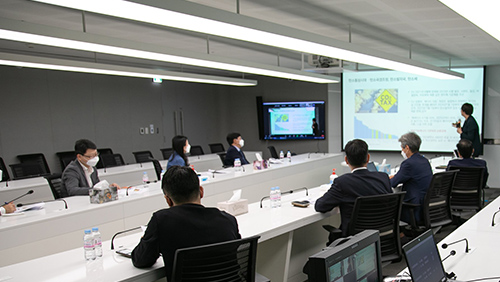Our Commitment
Our Commitment
 's Commitment to Sustainability
's Commitment to Sustainability
At Hanwha, we are firm in our belief that the choices we make today will impact the world tomorrow.
Therefore, we develop practical solutions to global issues through our business, technological, and corporate activities.
As a leader for positive change around the world, we also pursue sustainable development opportunities.
-

- Environmental Sustainability
- With a sharp focus on the research and development of eco-friendly technologies, we are addressing urgent environmental issues such as climate change and air pollution by producing clean energy solutions to ensure a sustainable future.
-

- Social Sustainability
- We strive to make a positive impact on the global community through our corporate activities. To achieve this, we established a working environment that inspires professional development. We also began implementing a healthier work culture and supporting social sustainability through better compliance management and participation in social impact activities.
-

- Economic Sustainability
- As the Fourth Industrial Revolution advances, we will stand at the forefront of technological innovation that will form the foundation for sustainable industrial and economic development.
Countries and organizations around the world have rallied around the United Nations’ Sustainable Development Goals (SDGs): a set of interconnected objectives to “achieve a better and more sustainable future for all” by 2030. Cross-sector collaboration – economic, socio-political, and environmental – is crucial to achieve the 17 SDGs and their 169 development targets.
 ’s SDG Support
’s SDG Support
Hanwha is a firm supporter of the UN SDGs, particularly those we can address directly through our business and social impact activities. Our primary areas of focus are SDG 7 (Affordable and Clean Energy), SDG 12 (Responsible Consumption and Production), SDG 13 (Climate Action), SDG 15 (Life on Land), and SDG 17 (Partnerships for the Goals).
Some of the ways Hanwha contributes to the SDGs include:

-
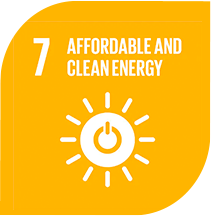
- Solar energy
- Hydrogen energy
- Eco-friendly mobility
- Hanwha Happy Sunshine
- Solar power system donation to Jukdo, Korea
-
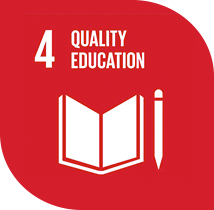
- Hanwha DREAMPLUS
- Hanwha Science Challenge
-
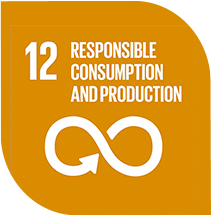
- Researching and development of eco-friendly materials and plastics
(such as ECO-DEHCH plasticizer,
bioplastics, etc.)
- Researching and development of eco-friendly materials and plastics
-
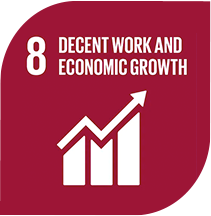
- Shared-Growth and Fair-Trade
Agreements with small-to-medium
business partners - Co-prosperity funds and private
equity funds for mutual growth
- Shared-Growth and Fair-Trade
-

- Hanwha Solar Forest
-

- Solar energy
- Hydrogen energy
- Eco-friendly mobility
- Clean Up Mekong
- Hanwha Happy Sunshine
-
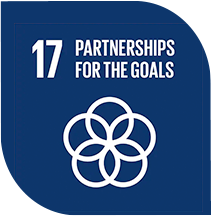
- Partnering with international organizations, including the World Economic Forum, United Nations Convention to Combat Desertification, and Global Green Growth Institute, and Partnering for Green Growth and the Global Goals 2030 (P4G)
Ethical management based on integrity is a core principle for Hanwha.
It will establish ethical and responsible management standards.
Hanwha Group, which since its foundation has been devoted to its community and has grown alongside the nation, in order to build an even more transparent and ethical management foundation, is actively practicing ethical management with qualitative growth as its top priority.
In 2018, Hanwha established the Hanwha Compliance Committee in order to improve corporate governance by enhancing transparency in management, setting up a foundation for responsible management, and strengthening board-centered management. Further, Hanwha’s major affiliates are taking active steps, such as gradually excluding prior Hanwha Group employees from eligibility for their respective external director positions, to strengthen the independence of their external directors, promote transparent management, improve corporate governance structures, and foster shareholder-friendly management.

In July 2018, Hanwha Group established the Hanwha Compliance Committee to promote group-level corporate compliance. The establishment of the Hanwha Compliance Committee is significant in that it was kick-started not by external pressure but by the internal efforts of Hanwha Group employees and executives actively practicing Hanwha’s philosophy of “Going Further Together” based on compliance and ethical management.
The Hanwha Compliance Committee aims to establish corporate compliance management of a global standard through its comprehensive programs ranging from the development of internal policies, educational programs, and corporate diagnosis to implementations. Further, the Hanwha Compliance Committee will support Hanwha’s affiliates in their practice of self-management and will promote a voluntary compliance management culture in the workplace for each.

Hanwha Compliance Committee is a group-level consultative body that promotes compliance management for all Hanwha’s affiliates by establishing group-level compliance policies and inspecting and providing support to each of the respective affiliates regarding their implementation of compliance policies.
 ’s Structure and Role
’s Structure and Role
-
Structure

The Hanwha Compliance Committee is comprised of five members, more than half of which are external experts appointed to maintain independence and fairness. In addition, the Hanwha Group reorganized each of its affiliates’ compliance organizations and increased the number of professionals with compliance expertise.
-
Role

Committee Meetings
The Hanwha Compliance Committee receives quarterly reports on major compliance issues upon which it deliberates and decides on the best courses of action.

The Hanwha Compliance Committee directly performs compliance duties for the Hanwha Group, ranging from education, development of self-compliance guidelines, and dissemination of compliance-related messages.
-
01 Education
The Hanwha Compliance Committee organizes training programs to develop a voluntary corporate compliance culture amongst its employees and to strengthen the relevant expertise of compliance personnel. In addition, training curricula suitable to the business areas and duties of each of the respective affiliates are being developed and upgraded.
-
02 Compliance Guideline Development
The Hanwha Compliance Committee, on an annual basis, prepares and distributes compliance guidelines for each of the major regulations and applicable laws while advising each affiliate to develop their own set of compliance guidelines based on their respective business needs and circumstances.
-
03 Examining and Strengthening Hanwha’s Corporate Compliance
The Hanwha Compliance Committee provides assistance for each of the affiliates’ respective self-inspection and improvement activities to proactively address any potential risks that may arise. Further, the Hanwha Compliance Committee has put in place an external reporting system through which all internal and external stakeholders are able to request an investigation, and the applicable affiliate receiving such a request can take all appropriate measures in the event of illegal management activity.
-
04 Promoting Corporate Compliance
The Hanwha Compliance Committee selects timely topics on compliance management and distributes relevant messages to each of the affiliates, contributing to the employees’ awareness of compliance issues and compliance culture within the group.
 Business
Business
The Hanwha Compliance Committee reviews and supplements the work plans of each compliance organization of Hanwha’s affiliates. Further, the Hanwha Compliance Committee evaluates work performance each year based on this review to support and manage compliance performance in the workplace.

Hanwha Group Strengthens ESG Management to a Global Level
In his 2021 New Year’s address, Hanwha Chairman Seung Youn Kim said, “Many global companies have set environmental, social, and governance (ESG) standards for their operations as part of their corporate behavior. And as a global leader in renewable energy, we have to proactively tackle climate change and lead the environmental efforts that will take us into a zero-carbon era.”
Hanwha Group has established and implemented management strategies to enhance sustainability and strengthen ESG management to a global level.

Hanwha Group formed the Hanwha Group ESG Committee in May of 2021 to carry out group-level ESG activities, and to support and advise its affiliates on ESG management.
-
Structure

Established under the Hanwha Compliance Committee, the corporate compliance-management consulting body, Hanwha Group ESG Committee is comprised of the key executives from the Hanwha Compliance Committee, the HR and Finance departments of Hanwha Corporation, the Hanwha Communications Committee, and from each of the major affiliates, across the four sectors of ESG management, such as environment, social responsibility, governance, and external communication.
-
Roles

The Committee holds regular quarterly meetings and ad-hoc meetings. It strives to enhance the ESG-management system within Hanwha Group and support affiliates’ ESG-management activities by helping establish strategies for each business area and sharing information through ESG-related seminars and workshops.
 of
of  Affiliates
Affiliates
In 2021, Hanwha Group established ESG committees within the board of directors for each of its seven listed affiliate companies (Hanwha Corporation, Hanwha Aerospace, Hanwha Systems, Hanwha Solutions, Hanwha Life, Hanwha General Insurance, and Hanwha Investment & Securities) and two of its non-listed affiliate companies (Hanwha Asset Management and Hanwha Energy).
-
Structure

To strengthen the independence and expertise of the ESG committees, each of the chairpersons and majority of the members of each of the respective committees were appointed amongst independent directors.
-
Roles

Each of the ESG committees, established within the respective board of directors of the affiliates, is the highest decision-making organization overseeing ESG-management activities of the respective affiliate. Through quarterly meetings and status checks, the committees develop basic ESG-centered policies and strategies and review mid to long-term goals of responding to climate change, fulfilling social responsibilities, and enhancing stakeholder engagement.


